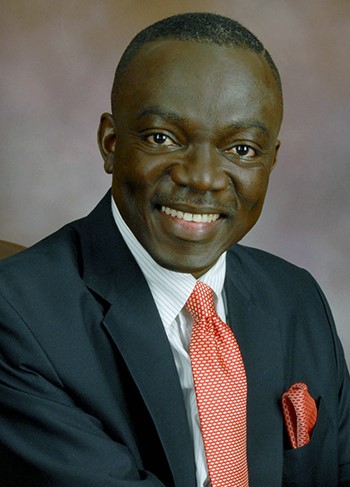
… as less than 2% of gov’t expenditure goes to women owned businesses. This must change
Using the same relatively unsuccessful formula and expecting a different result when it comes to realising procurement related value for money, achieving accountability and governance, significantly curbing unnecessary public sector spending and reducing waste will be deemed as negligence by future generations. Africans must acknowledge that moving from ideation to successful change means going beyond the usual, traditional and the expected.
A number of countries are certainly moving in the right direction on procurement reforms and must be applauded.
However, unless there are further amendments to relevant public sector procurement and financial laws, a true separation of functional powers as well as a change in modus operandi to enable the professionalisation of procurement and its associated elevation from a mere process to a strategic function, the chances of public sector and state-owned companies harnessing the power of strategic sourcing to facilitate long-term industrialisation will remain a pipe dream.

Strategic sourcing can play an important role in these change by providing a way to shake things up, turn developmental ideas upside down and infuse national and continental driven solutions to local and regional developmental challenges.
Yet, strategic sourcing is more than being disruptive for the sake of national and regional development. It is about industrialisation, creating long-term jobs, tackling youth unemployment, fostering entrepreneurship and small business development, and using resources to tackle social and economic challenges.
Accountability and good sourcing governance are essential to ensuring that strategic sourcing practices contribute effectively to the realisation of these developmental imperatives. Accountability is related to an obligation to transparently take full responsibility for actions taken or not taken. It involves, among other things, responsibility, answerability, trustworthiness, liability, transparency and reflection and has a direct impact on government officials’ actions, their institutions, local industries and Africa as a whole.

Related to accountability is governance. Simply put, good governance is about having the right procedural systems in place to monitor the actions of people with decision making powers who are operating in government, public and private sector organisations. Good sourcing governance is about developing people, mitigating risk and setting up directional and strategic plans to achieve set goals. It is focused on the tactical and operational implementation of set guidelines, standards, rules and laws and it is about monitoring and evaluating performance and success.
Practicing good sourcing governance involves long-term, focused, inclusive, equitable, participatory and transparent activities which are adaptive and responsive to the needs of society. Moreover, it is driven by consensus and should be targeted at achieving developmental goals.
In developing countries well over 50% of GDP goes towards public procurement. Of this, it is estimated that less than 2% of the market is catered to by women entrepreneurs. Women also face challenges in accessing procurement contracts, and procurement processes tend not to facilitate successful outcomes for women.
In Africa, women, youth and people with disabilities account for over 50% of the continent’s population. Yet, the majority of their businesses are excluded from industrial and public procurement due to their relative lack of access to information on bids, understanding of procedures and sometimes their inability to competitively meet public sector requirements.

Procurement, and in particular strategic sourcing, offers various emerging world governments a unique platform to empower women and reduce poverty.
To make their economic empowerment a reality, there must be targeted, but realistic, policies that will help to strategically source from these groups. This will include among others sectorial adjustments to the public sector acquisitive process and supply-side capacity building required to increase sourcing from women-owned organisations.
Africa as a region has the most to gain from structural economic diversificational change. However, it is an accepted fact globally that transformation can only be achieved through industrialisation, i.e. focused value addition to local resources.
Over the last five decades, Africa’s economic growth has mainly depended on the export of unprocessed raw materials to other economies outside of the continent. The income from the exportation has generally been used to support the sourcing and importation of semi-processed raw materials and finished goods for local consumption. This has resulted in a major manufacturing and value addition deficit.
Strategically supporting locally-based value-adding manufacturing companies, especially through sourcing practices, can assist various governments to achieve significant reductions in unemployment and poverty levels as well as move closer to achieving the UNSDGS and Agenda 2063.
This support is dependent on the region’s governments moving away from just buying towards strategic sourcing. Moreover, they need to to realise and accept that addressing current industrial structural anomalies requires patience, hard and sometimes uncomfortable decisions, clear direction (especially sourcing practices), long-term thinking and focus.

If any of these key critical ingredients are missing from the road map to industrialisation, its economic impact will be minimal. With these types of mindset changes, countries like Ghana can become one of the main manufacturing hubs on the continent supplying a variety of locally produced goods.
In support of more strategic sourcing practices, there is the need to have expert negotiators to help negotiate better agreements and advance the multiplicity of regional, bilateral and multilateral relationships and to help build a community of common destiny. Governments must push for multilateral approaches to world trade to enable strong participation in the negotiations, by leveraging their collective strength and building effective alliances with other developing country groups.
Africans should be teaching African children about the ‘Proudly African’ philosophy, buying African products and encouraging individuals and companies to look at first sourcing locally, then from the rest of Africa, and only then from elsewhere in the world.
Related to this, it is vital that African governments accelerate the free movement of people as it will help to facilitate intra-African trade and investment, cultural awareness, increase remittances in Africa, promote mobility of labour, create employment and improve standards of living. This will enable the mobilisation and utilisation of human capital and the vast material resources of Africa in order to permanently redress the huge socio-economic imbalances.
The African Continental Free Trade Area (AfCFTA) is an envisaged free trade area made up of the 55 African Union affiliated countries. The vision is to create the largest free trade area in the world since the formation of the World Trade Organisation.
The agreement was brokered by the African Union (AU) and was signed by 44 of its 55 member states in Kigali, Rwanda on March 21, 2018. The agreement initially requires members to remove tariffs from 90% of goods, allowing free access to commodities, goods, and services across the continent. Prior to the COVID-19 pandemic the United Nations Economic Commission for Africa estimated that the agreement would boost intra-African trade by 52% by 2022.

Key to the success of the AfCFTA is the strategic sourcing aspects of procurement. The goal of the initiative is to improve intra-African trade which is currently below 20% compared to over 55% and 65% in Asia and Europe respectively. Currently endorsed by over 45 African countries, the aim is to boost economic output to over US$29 trillion by 2050. As part of the implementation plan, African leaders must look to create a Pan-African focused electronic product database to aggressively help promote and create strong regional awareness in relation to ‘Made in Africa’ products rather than ‘Made in country specific products’.
The time is ripe to harness the power of strategic sourcing to help realise various national and regional developmental goals, Agenda 2063 and the broader UNSDGs. Changes are needed now, more than ever, and governments across the continent should be looking to strategic sourcing to help to make these changes a reality.
Strategic Sourcing and Industrialisation insights with Prof Douglas Boateng
Douglas Boateng, Africa’s first ever appointed Professor Extraordinaire for supply and value chain management (SBL UNISA), is an International Professional Certified Chartered Director and an adjunct academic. Independently recognised as one of the vertical specific global strategic thinkers on industrialization, supply and value chain governance and development, he continues to play leading academic and industrial roles in sectorial reforms both in Africa, and around the world.
He has received independent recognitions and numerous lifetime achievement awards for his extraordinary contribution to the academic and industrial advancement of supply chain management from various international organisations including the Chartered Institute of Procurement and Supply, the Commonwealth Business Council and American multi-national Hewlett Packard (HP). For more information visit www.douglasboateng.com and www.panavest.com. He can also be reached at [email protected]









